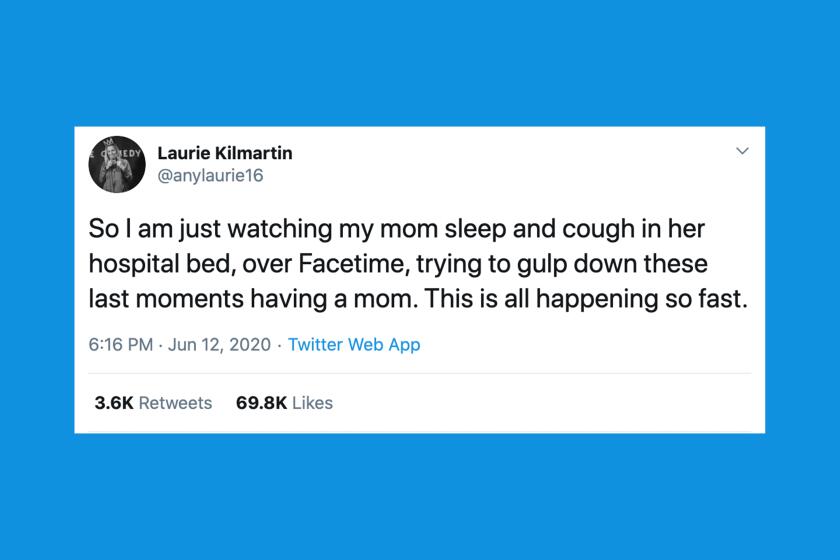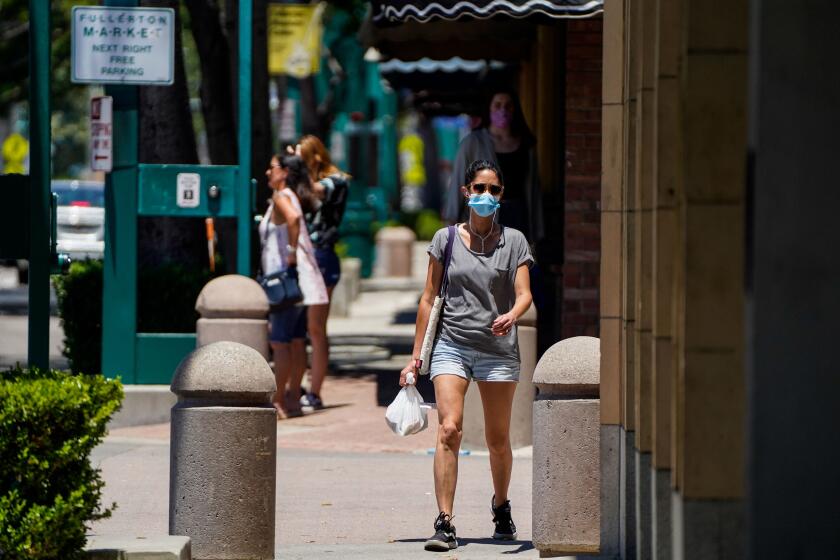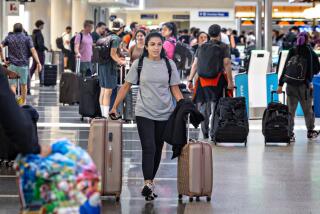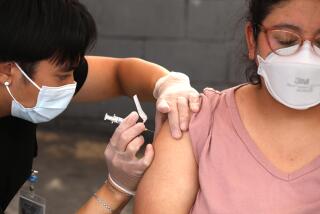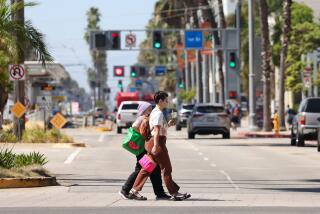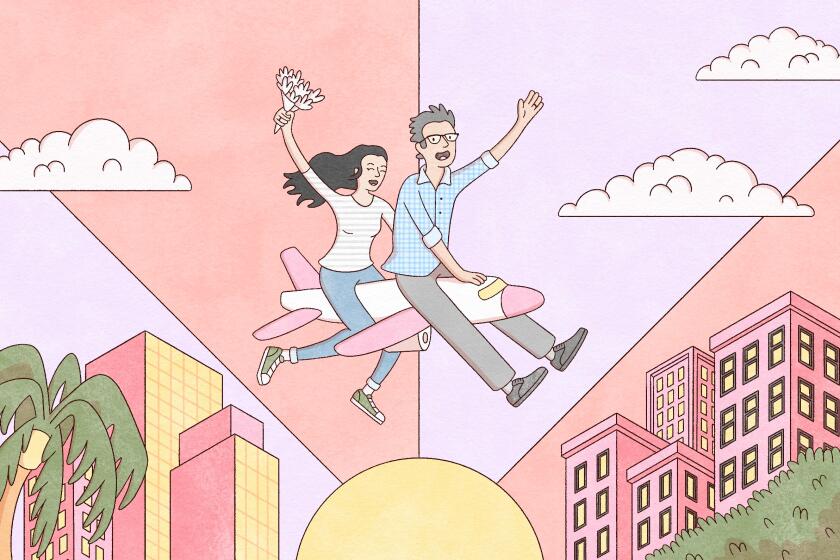I went to the doctor for a routine checkup during the pandemic. You should, too
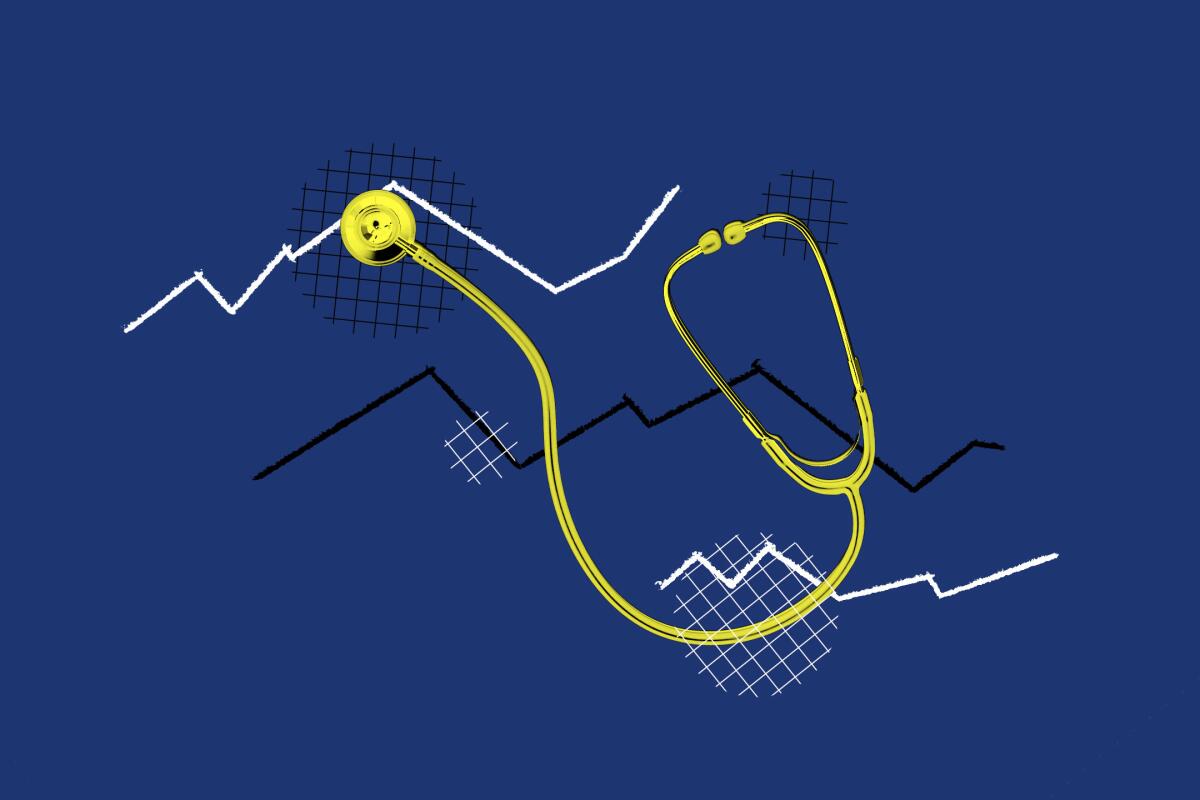
The message from my doctor’s office fell into my inbox in early May. It stated: “Based on our records it appears that the following appointment is due for scheduling.”
What? My doctor wants me to come in for a checkup? Amid a pandemic?
At first, I considered playing possum — not responding. Yes, Los Angeles was lifting its stay-at-home requirements and was starting to open up, but the county was still a hot spot for COVID-19.
Could I put this off? Wouldn’t it be better to avoid medical clinics where other people have been breathing, sneezing, touching things?
In heartbreaking and astonishing detail, comedian and writer Laurie Kilmartin used Twitter to detail the final hours of her mother’s life Thursday morning to her 85,000-plus followers. Thousands of people responded with messages of support and sympathy as they accompanied her journey through the loss.
Ultimately I decided to go ahead with the appointment. The reasons involved a national healthcare disaster few have recognized.
Over the last three months, Americans have been avoiding hospitals and medical clinics, even when sick or injured. In May, the Commonwealth Fund published a study that found doctor’s visits in the United States dropped by about 60% from mid-March to mid-April.
Visits have rebounded as the economy has slowly reopened, but as of mid-May, the number of visits was “still roughly one-third lower than what was seen before the pandemic,” the researchers reported.
Here in California, emergency department visits dropped by 40% to 60% during the two-month shutdown, according to a report this month by the California Health Care Foundation.
There are likely several reasons for this drop. People are busy. Some are juggling jobs while caring for kids at home. Others are mired in the red tape of obtaining unemployment insurance.
Video teleconferences with doctors have been an option ever since the lockdowns of mid-March but early on, there were questions on whether health insurance would help cover those calls.
Yet fear is a major factor. Rightly or wrongly, some are apparently scared that medical clinics could be a conduit for contagion.
With summer coming and COVID-19 lingering, travelers are antsy, Western destinations hopeful
That is unlikely. Doctors’ offices and medical personnel have to comply with strict safety protocols, giving these clinics a whole new feel amid this pandemic. When I arrived for my appointment, a masked nurse was outside the clinic doors, asking if I felt any symptoms and checking my temperature with a forehead thermometer. Inside, the waiting room was empty. Another masked nurse quickly escorted me to the scales to check my weight.
Unlike in the pre-pandemic era, the nurse asked me to remove my sandals before stepping on the scales, on which she had placed a piece of protective paper.
She took my blood pressure, and retook my temperature with an ear thermometer.
Minutes later, my physician, Dr. Elizabeth Ko, entered the room. Instead of shaking my hand, she put her hands together in front of her chest and bowed.
“This is how we shake hands,” she said, and I could detect a big smile on her face, even behind her mask.
For the most part, it was a pretty normal exam, other than the fact she spent most of it on a chair seven feet away. We talked for a while, with her asking questions about my life and work.
She clearly was checking in on my mental health. “Are you sleeping well?” I did my best to sound more sane and and rested than I probably am.
Since the March shutdowns, Dr. Ko had been helping colleagues with COVID-19 patients, treating them by video and not in the clinic where I was sitting. When California and Los Angeles County signaled in early June that various businesses would be allowed to reopen with restrictions, UCLA Health started sending out emails urging me and others to make appointments.
I recall during past medical exams that the doctor would ask me to open my mouth, at which point a very rough tab would be placed on my tongue, as my doctor would peer into my mouth.
That did not happen during this exam. My mask stayed on. So did hers.
Then she pulled out her stethoscope.
As she checked my heart, the experience took me back to my first childhood days. I remember those early exams, when the surface of a stethoscope seemed so cold on my skin, so clinical. Now I find it fascinating that doctors continue to depend on such old-school technology to check something as important as a heartbeat.
(Interesting historical fact: The stethoscope was invented in the early 19th century by a French doctor, a devout Catholic named Rene Theophile Hyacinthe Laënnec, who was concerned about placing his ear directly on a woman’s chest.)
Asking me to lie back, Dr. Ko then pressed on my stomach, checking the surface of organs such as liver, kidneys and bladder.
She checked my neck, which I informed her was unusually stiff from three months of working at a computer on our dining room table.
She checked my head, nicely shorn by my wife after I finally broke down and let her cut my hair during the lockdown.
All this just took a few minutes but it prompted some reflection much later. I had allowed my doctor and her nurse to touch me directly. This was the first time in three months that anyone other than my spouse had done so.
The rest of the checkup was routine, with blood and urine samples taken. And that was it.
A few days later, I got my test results back. I was fine, other than needing to slightly knock down my cholesterol levels, perhaps a side effect of too many heavy meals after purchasing too much meat early during the pandemic.
The new health order marks a major shift in many parts of California, where most counties — including Orange, Riverside and San Bernardino — do not have mask requirements.
As a child, I remember not wanting to see the doctor or sit in those exam rooms, with their fluorescent tube lighting and antiseptic smells. I can understand why so many people want to avoid them.
But now, more than ever, staying healthy is crucial.
Simple blood tests, urine tests and direct exams can detect early cancers, diabetes, hypertension and many other illnesses. Most of these ailments can make one more vulnerable to COVID-19. Or they could kill you outright, regardless of the coronavirus.
So stop playing possum. Visiting your doctor might be the key human contact you’ve been missing all these weeks.
More to Read
Sign up for The Wild
We’ll help you find the best places to hike, bike and run, as well as the perfect silent spots for meditation and yoga.
You may occasionally receive promotional content from the Los Angeles Times.
